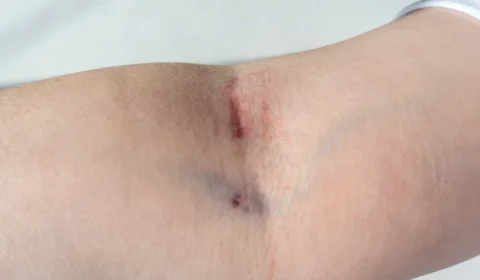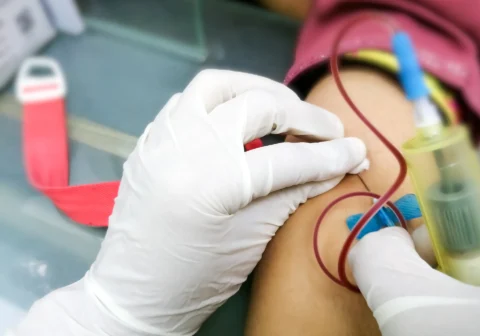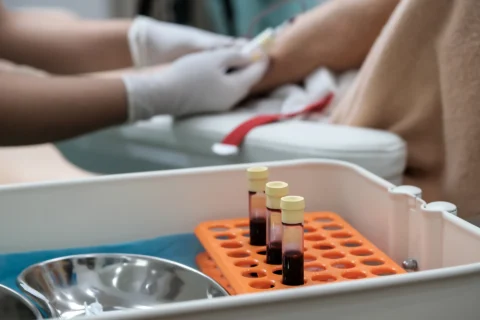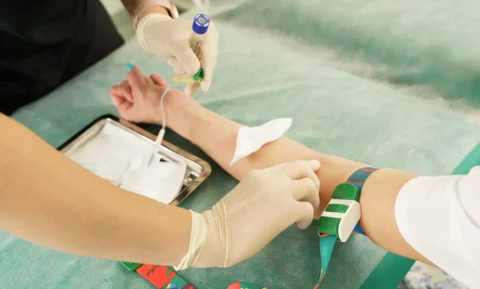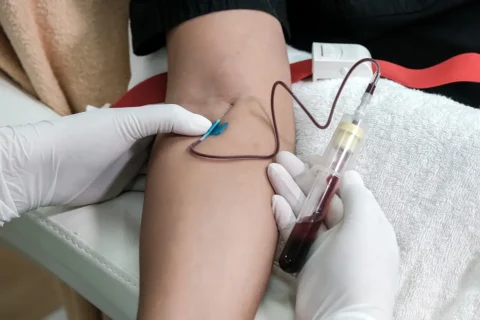The medical aesthetics industry has experienced unprecedented growth and is actively seeking qualified personnel. Many medical professionals are wanting to learn the most recent breakthroughs in the field of aesthetics, such as injectable treatments. Although the prices add up, obtaining a Botox training certification can be very useful in your practice in the industry.
So are student loans available for Botox classes? For financing your Botox class, you can turn to student loan options, such as federal loans or private loans. There are also a number of scholarships, loans, and grants available to you for medical aesthetics training, just as in any other field of study. To identify the ones you are eligible for, you simply need to do little research.
Are Botox Classes Eligible for Student Loans?
The availability of student loans for medical aesthetics training is less common than for more conventional educational loans. Students will have to put in a bit more effort to find them, but that doesn’t mean they don’t exist. Different outcomes can be expected from the usual sources of student financing.
Most federal and state loan programs cater to the needs of students attending four-year universities. Private lender loans will have more options; although, the problem is that they could be scarce and difficult to obtain.
But note that there’s a major shift taking place in the American educational system, and vocational training is increasingly given more importance. This has increased the availability of continuing education loans, which might be a great help to those interested in a career in the aesthetics industry.
Types of Student Loans
Many people may believe that financial assistance is exclusively available to students attending traditional university programs. This means that a person who is enrolled in a professional program, such as medical aesthetics training, can be unsure of their eligibility for any grants or loans from the government or from private lenders.
There are many different kinds of financial aid available to students to help them with the payment for the fees of post-secondary education, and assistance can come from the federal or private sectors. Here’s an overview of the common sources of financial aid you may probably come across.
Federal Direct Student Loan
Federal student loans are typically associated with four-year universities. However, due to the renewed focus on career training and on lowering the unemployment rate, federal student loans are now more frequently made accessible to students enrolled in vocational programs that are meant to help them land secure jobs faster.
As a result, students who are enrolled in a recognized community college, career, trade, or technical school are now eligible for federal direct student loans. Attending an established cosmetology school, or enrolling in an accredited vocational school or community college, can make all the difference in this situation.
When considering federal loans, a person should be aware that they must be enrolled in an accredited institution and be pursuing a recognized degree or certificate of completion in order to qualify. Borrowing restrictions, which are set by the applicant’s institution of attendance and are limited to the total fees of tuition, are the same as for all federal student loans.
Private Lender Student Loan
While there aren’t many government loans available for cosmetology students, private lender loans are a good alternative for those who need financial assistance. Student loans from private lenders are notably different from those from the federal government. Private student loans frequently offer stricter repayment terms, higher interest rates, and harsher penalties for missed payment or unpaid debt.
Additionally, they are more challenging to obtain than government loans and are based purely on the credit score of the applicant. Given that many students have little to no credit history or none at all, this may be problematic for them. Students may also be faced with debt from other private lending institutions. But note that a lot of banks and private lenders do let students use a co-signer with a good credit history to get a student loan.
It may be necessary for medical aesthetics students who are thinking about taking out a private loan to get in touch with several banks and lending organizations in order to track down a plan that works for them. In fact, not all banks and banking institutions provide loans for continuing education, so it may be necessary for students to conduct some research to find a reliable lender.
Types of Financial Aid for Aesthetics Students
There are several factors to take into account while considering whether or not to attend Botox class. For the license necessary to work as a certified Botox injector, which is required in the majority of states, you must successfully finish a formal Botox course. But note that you must also consider your financial situation.
Many students find it difficult to continue post-secondary education because of their problem with inadequate financial resources. Fortunately, financial aid for Botox training is available, and it might not be as difficult to get as you might think.
Scholarships and Grants
Scholarships are monetary gifts given to students for many different reasons, such as academic achievement, membership in particular affinity groups, originating from a particular background or community, deciding to study particular high-need subject areas, and more. Scholarships may be given out by schools, private businesses, nonprofit organizations, employers, professional associations, or private donors.
On the other hand, students who can prove they lack the financial means to afford higher education typically qualify for grants. The Pell Grant, the most well-known of all government-funded student assistance programs, is the grant you’re most likely to come across as an undergraduate or vocational student.
Students majoring in the arts or enrolling in vocational or career-training programs may also be eligible for grants from your state or a private organization, depending on their financial need. To find out about any grants you could qualify for, be sure to contact the department of education or board of cosmetic surgery in your state.
Work-Study Programs
A work-study award is an agreement between the federal government and your school to provide a predetermined amount of funds, which your school will use to pay you as a part of their staff. Work-study students are required to apply for jobs at the school campus and receive their pay from the institution.
But do note that they’re not permitted to earn extra profit from the institution than what is supplied by the government. There’s no requirement that all of the money go toward tuition; instead, students are free to utilize it anyway they see appropriate.
Make sure their policies, including any demands that you work for them for a specific period of time after receiving income, meet your needs before submitting an application to work at the campus of the institution offering tuition reimbursement.
Why is Botox Training Important?
Botox training can make your office clinic stand out by enabling you to offer this treatment and capitalize on the rising demand of the service, which gives great benefits for both your patients and your business. Training in aesthetic injections is crucial for a variety of reasons. Picking up books and learning a new skill is not difficult, but there are risks associated with Botox and dermal fillers, and complications can and frequently do occur.
It’s invaluable to get hands-on experience in Botox training to learn not only the skills of injecting but also the confidence to do so safely. Additionally, training will educate you on how to assess and take care of your clients, measure the doses for the best outcomes, communicate realistic expectations, differentiate between products, mix products properly, know when to follow up, and recognize and manage emergencies.
Since Botox treatments are temporary, skilled injectors can convert every client into a returning client. In fact, injectable treatments give benefits, such as a consistent flow of income, to certified injectors. Returning clients increase the likelihood that the patient will recommend your business and service to their friends and family and give the opportunity to establish meaningful doctor-patient relationships.
The first step to take is to examine the graduation rates and history of financial assistance offered by nearby Botox training programs when conducting your research. Keep in mind that it may be worthwhile to give those with excellent graduation rates and records of generous financial aid another look.
Do You Qualify for Botox and Dermal Filler Training?
Botox training can make your office clinic stand out by enabling you to offer this treatment and capitalize on the rising demand of the service, which gives great benefits for both your patients and your business. Training in aesthetic injections is crucial for a variety of reasons. Picking up books and learning a new skill is not difficult, but there are risks associated with Botox and dermal fillers, and complications can and frequently do occur.
It’s invaluable to get hands-on experience in Botox training to learn not only the skills of injecting but also the confidence to do so safely. Additionally, training will educate you on how to assess and take care of your clients, measure the doses for the best outcomes, communicate realistic expectations, differentiate between products, mix products properly, know when to follow up, and recognize and manage emergencies.
Since Botox treatments are temporary, skilled injectors can convert every client into a returning client. In fact, injectable treatments give benefits, such as a consistent flow of income, to certified injectors. Returning clients increase the likelihood that the patient will recommend your business and service to their friends and family and give the opportunity to establish meaningful doctor-patient relationships.
The first step to take is to examine the graduation rates and history of financial assistance offered by nearby Botox training programs when conducting your research. Keep in mind that it may be worthwhile to give those with excellent graduation rates and records of generous financial aid another look.
Do You Qualify for Botox and Dermal Filler Training?
Healthcare professionals can acquire the skills required to offer Botox choices by undergoing training. As the procedure caters to a broader audience, doctors can grow their practices by learning the skill. Enroll in the top dermal filler and Botox certification programs available in your area if you’re interested in earning your license for Botox certification. This will be time, money, and effort well spent.
There are one or two-day courses made especially for this reason if you are a medical professional who wants to add Botox to your list of specialties. To receive a genuine experience and a clear idea of the outcomes to expect, make sure to choose a certification program that uses a supply of real items and offers you hands-on instruction for Botox treatment and care.
The rules governing Botox operations vary depending on where you live. Botox injections should typically only be administered by qualified medical doctors, medical dentists, or registered nurses. Although cosmetic goals are the primary focus of injectable treatments, Botox is a drug that requires a prescription.
Botulinum toxin injections should only be administered by a medical professional who has the appropriate credentials, such as:
- Licensed medical practitioners: Injectable treatments, such as Botox and dermal fillers, can both be prescribed and administered by licensed medical doctors, provided that they have completed the necessary toxin training for each. All types of medical professionals, including dermatologists, plastic surgeons, and general practitioners, are qualified to administer Botox.
- Certified dentists: Botox injections are a great opportunity for dentists to broaden their knowledge and practice. Make sure you can administer Botox for aesthetic purposes because there may be restrictions in your location that prevent dentists from performing the procedure on a patient other than for medical needs. For example, dealing with pain brought on by temporomandibular joint (TMJ) disorder.
- Nurse practitioners: Dermal fillers and Botox can be administered by registered nurses who have obtained the necessary certification. They must, however, sign up for neurotoxin classes and receive a dermal filler and Botox certification from an accredited institution. Only registered nurses who are appropriately certified can deliver the treatment while being supervised by other medical staff, like doctors or surgeons.
The majority of states don’t allow cosmetologists, nurse assistants, medical assistants, or estheticians to practice as aesthetic injectors. To find out the most recent information, you might wish to review your state’s laws, which could point you toward your state medical board. Medical aesthetics training programs are essential if you want to become a professional aesthetic practitioner and give your patients effective and secure treatments.
Check Out Our Aesthetics Online Courses at FACE Med Store
If you’re interested in expanding your career and benefiting from the high standards of the industry, you may want to consider enrolling in a Botox training course. It’s no surprise that many healthcare professionals attend one or two-day training programs to learn about facial injectables.
Many clinics rely on FACE Med Store to supply them with high-quality products for their medical and cosmetic procedures. We also provide reputable educational programs that might help you find opportunities. To learn more about what we can offer for aesthetic training, visit our website and browse our catalog.
